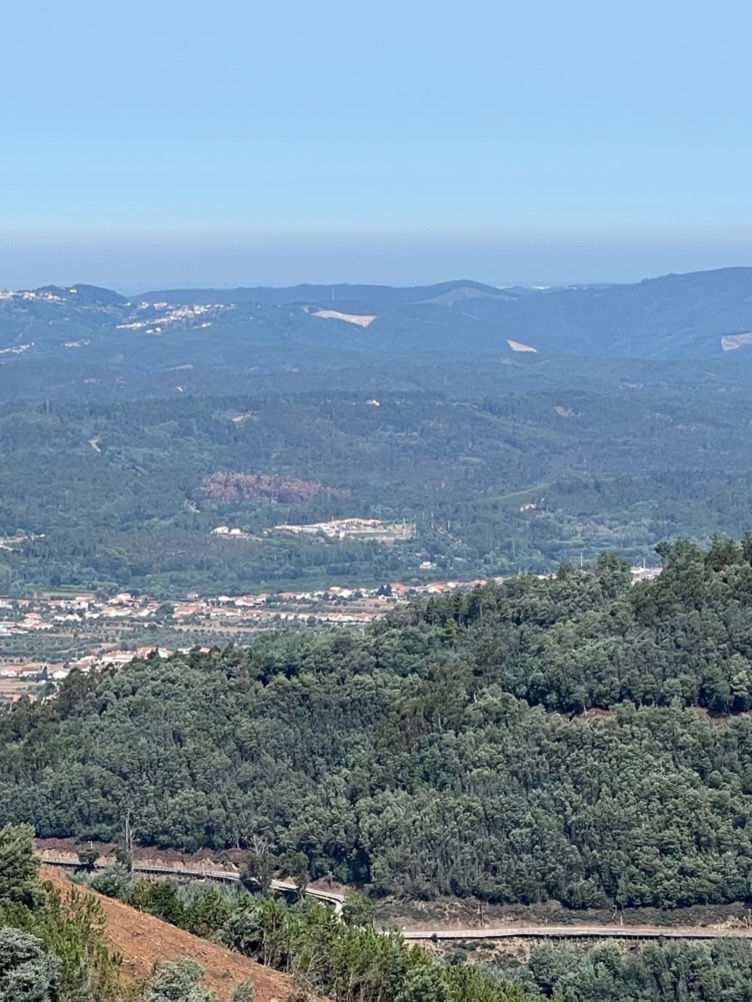
I wrote a large part of this blog last week as it was all part of that blog, but as usual, prior to editing, I added more content, more often than not exceeding the two thousand words I targeted. A recently found resource suggests that one thousand to fifteen hundred words is enough before the average reader gives up. I checked on Cathy Buckles's excellent and interesting Letter from Zimbabwe; https://cathybuckle.co.zw/blog/. She generally sticks to around a thousand words. I have always been too verbose, as many know.
Our daughter Storm along with Wendy and Sarah Whaley, stayed with us this week therefore, I have included some of the places they visited in the photographs.
Before I continue to write, I would like to remind you my blog is my own perceptions supported by facts or events I am aware of at the time. Either in the present or our recent history in that country, Zimbabwe and in Africa. My interpretation may not be similar to that of others, nor am I going to apologise for them.
That is not the main point I picked up; reading the part I cut from last week's blog. On reflection, it would strengthen the argument that there was a huge colour divide on farms in the eighties and nineties during post-Independence Zimbabwe despite farmers' families living amidst large labour forces. It is probably true, and due to many reasons, both inherited from pre-independent Rhodesia and events occurring during post-independent Zimbabwe. More commonly, a combination of both. Although integration gained momentum as the years progressed, it occurred much quicker in the cities and towns compared to the farms, especially in relation to senior posts within Government ministries, councils and corporate businesses. In saying this, by the nineties, all the senior posts in Government were filled by what was termed indigenous Zimbabweans, based on colour, with very few exceptions. This was brought about both by policy and the emigration of many. Remember, the white population dropped from three hundred and fifty thousand to less than sixty thousand at independence, many of them senior administrators and managers. Their future roles looked bleak if they remained in the new Zimbabwe.
The one exception of note that affected us cattle farmers was Stewart Hargreaves, head of Veterinary Services, one of the few senior white individuals to remain in Government employment voluntarily and at the wish of the Government. The EU offered his department financial support at one time to help maintain beef exports using his experience.
At independence, the farmers were all somewhat nervous about what the future would hold despite Mugabe and some of his senior ministers' assurances that we could continue with our businesses. Any land required for resettlement would be acquired, they said, on a willing buyer or seller basis. Despite this, some farmers left, leaving a vacuum mostly taken up by neighbours in acquiring their farms and, in doing so, sought the services of qualified, experienced or ex-servicemen white managers to run these properties. It should be remembered we all remained armed behind locked security fences at night. Forgetting hostilities does not disappear overnight, and the indiscriminate murder of a number of farmers did not allay our fears. Further, to strengthen indoctrination of the local populace, especially our farm labour, the Youth Brigade, later to be known as the ‘Green Bombers’ was created and placed on the farms where their violent, intimidating tactics unsettled many, mostly directed against our labour force, not the farmer.

I often, and to this day, think about what our labour force had to endure, although from the mid-eighties to the mid-nineties, the political intimidation while existing was more subdued. The economy was doing well then, and jobs were plentiful. All that changed in the mid-nineties with growing political instability, a weakening economy leading to the farm invasions by the ‘War Veterans’ and the advent of the rejuvenated ultra-violent ‘Green Bombers.’
As a general rule, the African staff all lived on the farm relying not only on employment but health, education and assistance at times of need, especially in bereavement. By targeting the labour, it was seen as a means of intimidating the commercial farmer.
“In Zimbabwe, we soon learned ‘War Veteran’ did not necessarily mean what the name implied. Many who were to invade our farms under this guise were Zanu PF cadres or discontented youths.” - Peter McSporran
In the early eighties, there was a real effort to get black graduates to go into farming. I was involved for a number of years in initiatives with the University of Zimbabwe in trying to achieve this to no avail. As many white people left the civil service, Government employment was looked at as a plum career choice, unlike nowadays. Even graduates from the agricultural colleges of Gwebi and Chibero, both renowned for supplying good practical farm managers, would instead go teaching rather than farming. Blue-collar workers were looked down upon even for wearing a khaki shirt. I soon learned that a stigma surrounding working on farms was caused by a misperception of the roles and opportunities it offered. I learnt that the indigenous graduate would be embarrassed to say he or she was going farming, so few did in the early years.
“As a student, spending time on your practicals in rural areas is hard when your peers are living it up in town. The post-independent youth wanted all life could offer as soon as possible, and as far as they were concerned, this did not include working on a farm.” - Peter McSporran
By the nineties, that was slowly changing, not least with the realisation that careers in a corrupt and bloated civil service riddled with nepotism where salaries did not keep up with inflation had been, in hindsight, not such a good choice. As the practical curriculum was dropped in Government establishments with a focus on academia coupled with political interference in the running of the Government colleges, Blackfordby College was created under the auspices of the Zimbabwe Tobacco Association (ZTA) with a diploma in tobacco production. Later, during my time at the Commercial Farmers Union (CFU) joined their efforts to create a diploma in tobacco, including general agriculture. As this was privately funded, requiring fees, although subsidised to a large extent, it ensured many young black people preferred the state universities and colleges, which on graduation pretty well-guaranteed employment in Government. So despite our efforts, the pool of available managers remained predominantly white. In the meantime, a new breed of on-farm, practically trained managers was created through short courses at Blackfordby in various production skills, such as seed beds, land preparation, tractor driving, machinery maintenance, foreman courses, and irrigation. In later years, when I travelled Africa, it amazed me how many agricultural enterprises were run by indigenous Zimbabweans, the preferred manager, along with their white counterparts.
“Those politicos that took over confiscated farms soon realised having land does not make you a farmer.” - Peter McSporran
I can now move on to some of the managers I and my immediate neighbours employed. I should also say that black managers preferred employment with corporate farmers rather than family farms. Being on a farm can be a lonely life, especially for a black man unable to mix with the more pronounced on the farms than in the city; further, in the city, your peers are your neighbours, not so on the farm. So there we were, white farmers with some black managers but relying on indigenous bank managers, crop breeders, vets, fertiliser, seed salesmen and service industries, to name a few. With time, the demand for places in agricultural colleges grew, and the stigma of being a farmer eroded. Change was happening, but events overtook the process very much to everyone's detriment.
When I first moved into our area on the western bank of the Hunyani River and later the dam, few farmers had farm managers. They all had senior foremen, often capable of running the day-to-day operations on the farms in our absences on military service. Managers were, in some instances other than in name, foremen or ‘boss boy’, the latter not seen as derogative in those days. Most of the farms were single farm units except for two large farms in our area, Little England and Bill Gulliver's property, with absentee landowners and professional managers in place.
With the introduction of irrigation, when production more than doubled in area and yields, following independence and when land became more available due to people leaving, managers became necessary to the success of these expanding farming enterprises.
These people, generally men and their families, integrated fully with their bosses, neighbouring farm owners, and other managers. The white community was still very insular and small to allow an alternate form of social interaction. By the nineties, farms without managers were the exception, not the rule. The managers came from many walks of life, many not from farming stock. Normally, even if from farming stock, you worked as a farm assistant before becoming a farm manager or returning home to the family farm.
“Farmers think their heirs can learn more from others only to unravel all they have learned when they finally return to the family farm. Fathers are often the hardest and unfairest bosses.” - Peter McSporran
Assistants took patience to train and were really only glorified foremen, often spending the whole day in the fields or tobacco grading shed.
“Farm assistants' orders came from the owners or senior managers; their practical training was done mostly by the farm foremen, who were vastly experienced.” - Peter McSporran

Checking barns at night was a given duty for them. This was the traditional way to become a farm manager, just like an apprenticeship in a trade. With greater access to agricultural colleges or universities, many graduates only had a limited time as assistants, perhaps only two years, before becoming a manager. In saying manager, while many may have helped produce budgets, often the administration was carried out by the owners or their wives, in some instances, senior managers. In Zimbabwe, a good farm manager's measure was to successfully supervise the growing of crops, from land preparation through to market, maintain the machinery, and the most crucial role of all, manage a large labour force generally of at least seventy people, although some ran into the hundreds. Hours were dawn to dusk, and weekends off only at quiet times when the owner was on the farm. With livestock and the danger of fires, it was a general practice that either the manager or farm owner had to be on the farm at any given time. Not the life for everyone, the incentive was, for most, a share of the fruits of successful endeavours that would eventually allow them to farm on their own. The Zimbabwe Tobacco Association (ZTA) Tenant Farmer Scheme was the most used vehicle for managers to take ownership—an innovative concept that proved highly successful. My old friend, Dave Bradshaw, ran it for many years. Not all managers wanted to farm in their own right; some were ex-farmers who had not succeeded on their own or could not take the stress of borrowing money. The ZTA should be lauded for their foresight here; in this regard, along with training, they outshone the CFU. Of course, some would fail; that was to be expected.
“Just as excellent car mechanics sometimes make poor garage owners, good farm managers sometimes make poor farm owners.” - Peter McSporran
The most common cause of failure was being capable of administration; in saying that, many a farmer was ably supported by an excellent administrator in his wife. Yes, I am afraid the farming community in Zimbabwe was very much a patriarchal society, although women were often found running livestock enterprises and, importantly, the ‘farm store’. Many a farmer survived the lean times with income from his wife’s store. My own cattle manager was female, the capable Lady Daphne Powell.
I am going to mention some of my managers, as they are fondly remembered as very much part of my life, and some who worked for my neighbours, all at some time being integral parts of our local small community; please accept my apologies for those I perhaps miss. Rest assured, all of you contributed to the success of the farms and the well-being of our community at large.
Tony Leckie was my first real manager; I have previously mentioned him and his wife, Helen, followed by the late Mike Von Memerty and his wife, Karen. Ian Lindsay, otherwise known as the renowned Rinty followed, was single then but returned later as a married man with his wife, Daphne. The late Allan Fraser-Bell, single, Colin Smith and his wife Penny, then Graham Smith, and the late Darrel De Jager and his wife, Ang. All of these managers would leave me and start farming on their own, not forgetting Choppy and Karen Steyn, who I mentioned last week.
It made me proud that so many of my ex-managers went to farm successfully in their own right. Sad that all had to see their land confiscated after years of hard work; heartbreaking, perhaps that is why so many have died young. Some that worked for me but became professional managers included Malcolm and Bill Middleton, both ex-farmers; Bill’s wife made me sorghum porridge every Saturday morning when I visited their section in Mazowe. Dave Craft and his wife Joan, both now deceased, Jack Readings, also deceased; Mike McMaster and Tom Billar on the Mazowe farm and Andre, Tom’s brother and finally, Wayne and Joey Marais, who later with Rinty and Dave had a torrid time evacuating of the farms during the invasions. There are unmentioned, very few, I fired; others may have slipped my mind at this moment. Nearly all were younger than me except for Dave Craft, yet so many have died. People die young in Africa; there is no doubt of that.

Immediate neighbours’ managers that had a big impact were James and Helene Lapage, along with Lez and Cheryl Myburg, and Jeff Kirkman, all of whom worked for John Gordon. Tom and Sarah Eastwick, the Meltons and the Krynaus, who worked for my immediate neighbour Des Bruk-Jackson. All of whom are now in different lines of business scattered around the world, a few farming in Zambia, most self-employed. Unfortunately, it was not just farmers that lost their businesses in the economic upheaval that followed the land invasions; there was a general business failure as the economy was very much agriculturally based, and the majority of those with skills, professions and trades left the country for greener pastures. So sad and such a significant loss to the country.
Shit, over two thousand words again!
“Any country that sheds itself of its trained professionals and skilled artisans is doomed to failure.” - Peter McSporran
Disclaimer: Copyright Peter McSporran. The content in this blog represents my personal views and does not reflect corporate entities.
Comments